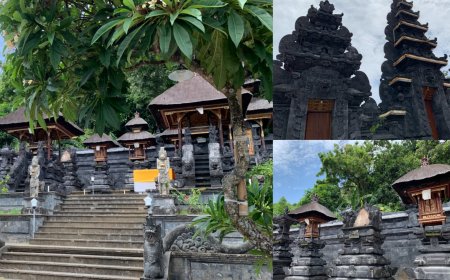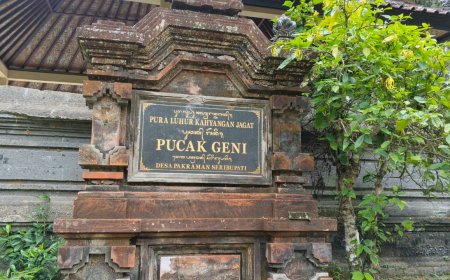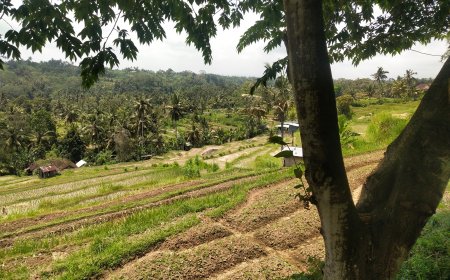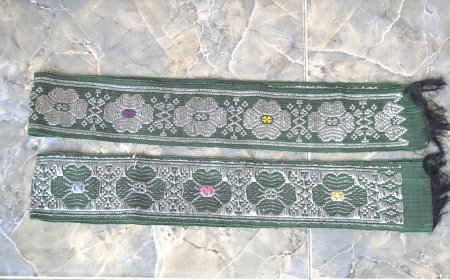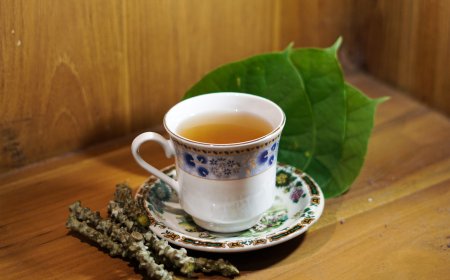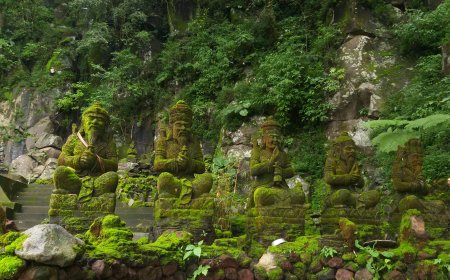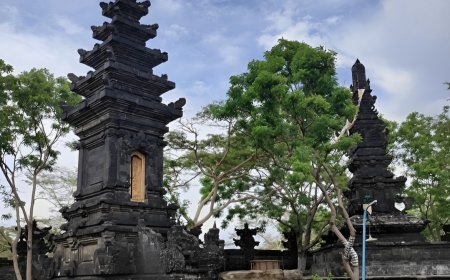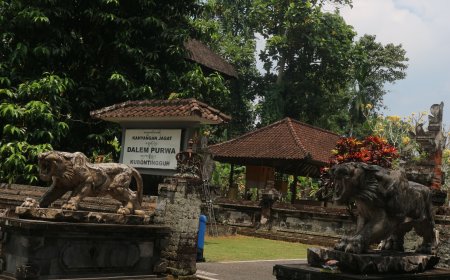Pura Desa Lan Puseh Adat Pecatu: The Spiritual Center of Balinese Traditional Life
Pecatu Village is renowned for its rich traditions and magical customs. In this village, Pura Puseh serves as a spiritual center that plays a vital role in the lives of its people. Beyond being a place of worship, Pura Puseh stands as a silent witness to various ancestral rituals passed down through generations. It is not only the natural beauty that graces Pecatu Village, but also the spiritual and traditional values that continue to be strongly upheld by the local community.
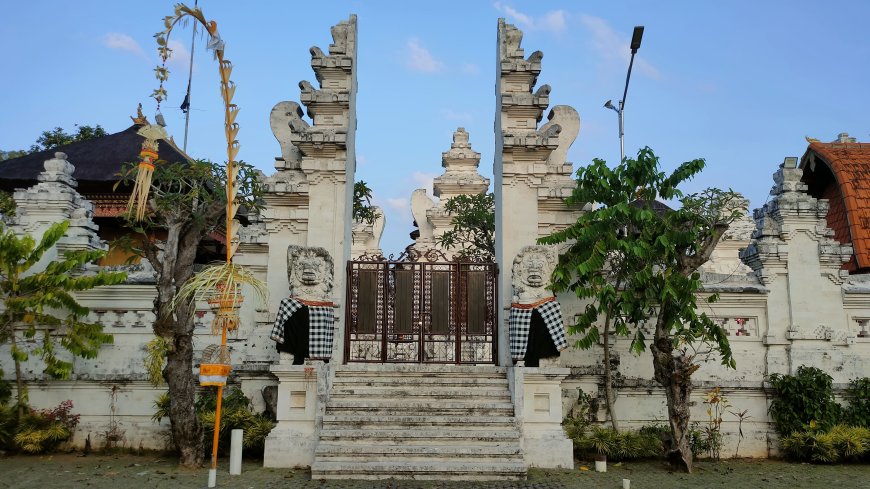
Pura Desa Lan Puseh in Pecatu Village is believed to have been built hundreds of years ago, in conjunction with the formation of traditional villages in the region. Pecatu, strategically located in the southern tip of Bali, was part of ancient Balinese kingdoms that flourished between the 10th and 14th centuries. During this period, Balinese society was organized into traditional village systems (desa adat), where each village had primary temples, including Pura Desa, Pura Puseh, and Pura Dalem.
The concept of Pura Desa Lan Puseh includes two key functions: Desa as a place of worship for gods protecting the community and Puseh representing the origin or "center" of the village. The temple's construction was often guided by spiritual leaders or pemangku (priests), based on divine signs or revelations received during sacred rituals. Vishnu, the deity to whom the temple is dedicated, is considered the protector of fertility and prosperity, making the temple a central point for seeking blessings and protection.
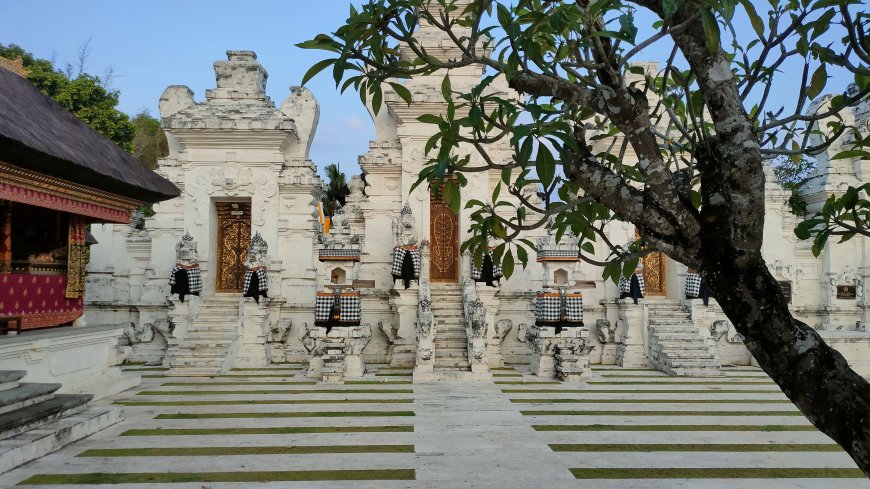
Pura Desa Lan Puseh Adat Pecatu (Source: Personal Collection)
Like many temples in Bali, Pura Desa Lan Puseh is rich in symbolism and structured with profound meaning. It is divided into three main areas—Nista Mandala (outer courtyard), Madya Mandala (middle courtyard), and Utama Mandala (inner courtyard). Each section of the temple is designed to reflect the spiritual journey towards purity. In the Utama Mandala, there is a pelinggih or sacred shrine, which serves as the focal point for offerings and worship dedicated to Dewa Wisnu, the deity of preservation, and the ancestral spirits believed to protect the village.
The temple’s architecture also showcases exceptional beauty, adorned with intricate Balinese carvings that embellish every corner of the structure. These carvings depict various Hindu myths, ancestral stories, and teachings that have deeply rooted themselves in the lives of the Pecatu community. The grandeur of the temple is not only reflected in its physical structure but also in the profound spiritual significance embedded in every element of its design.
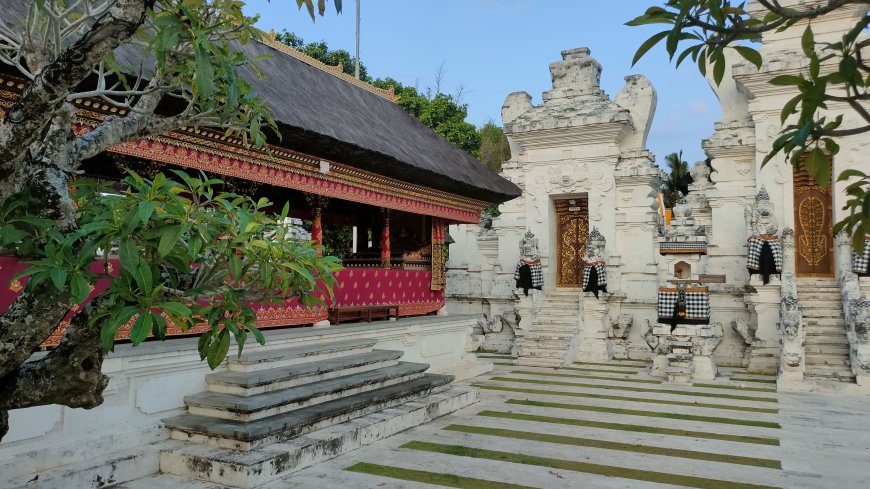
Pura Desa Lan Puseh Adat Pecatu (Source: Personal Collection)
Pura Desa Lan Puseh is a witness to numerous traditional rituals held throughout the year. One of the most important ceremonies is Odalan, the temple’s anniversary celebration. Odalan is typically conducted every six months, based on the Balinese calendar, and serves as a significant event where the entire village gathers to pray and offer sesajen (offerings) as a gesture of gratitude to the gods. Other rituals include Ngenteg Linggih, a ceremony aimed at seeking spiritual protection and balance for the village, as well as Piodalan, a regular series of worship rituals.
Each ritual held at the temple is led by a pemangku, a spiritual leader with religious authority in the village. The collective involvement of the community in these ceremonies highlights the strong social and religious bonds that exist in Desa Pecatu. This demonstrates that spiritual life and traditional customs remain an inseparable part of the daily lives of the people.
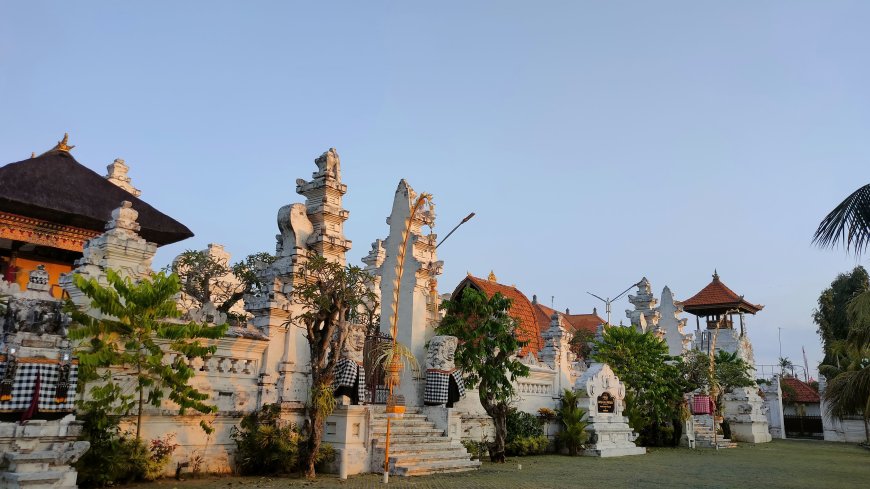
Pura Desa Lan Puseh Adat Pecatu (Source: Personal Collection)
Although Bali has become one of the most popular tourist destinations in the world, Desa Adat Pecatu remains steadfast in preserving the ancestral values passed down for centuries. Pura Desa Lan Puseh stands as a symbol of the community’s effort to maintain their traditions amidst the changing times. The strict adherence to traditional ceremonies reflects the fact that the people of Pecatu continue to uphold a balance between modern advancements and the preservation of their cultural identity. Amid rapid modernization and the growth of tourism, Desa Adat Pecatu has proven its ability to adapt without losing its essence. Through Pura Desa Lan Puseh, the Pecatu community not only preserves their ancestral traditions but also ensures that these spiritual and cultural values are passed on to future generations, keeping them alive and relevant.



